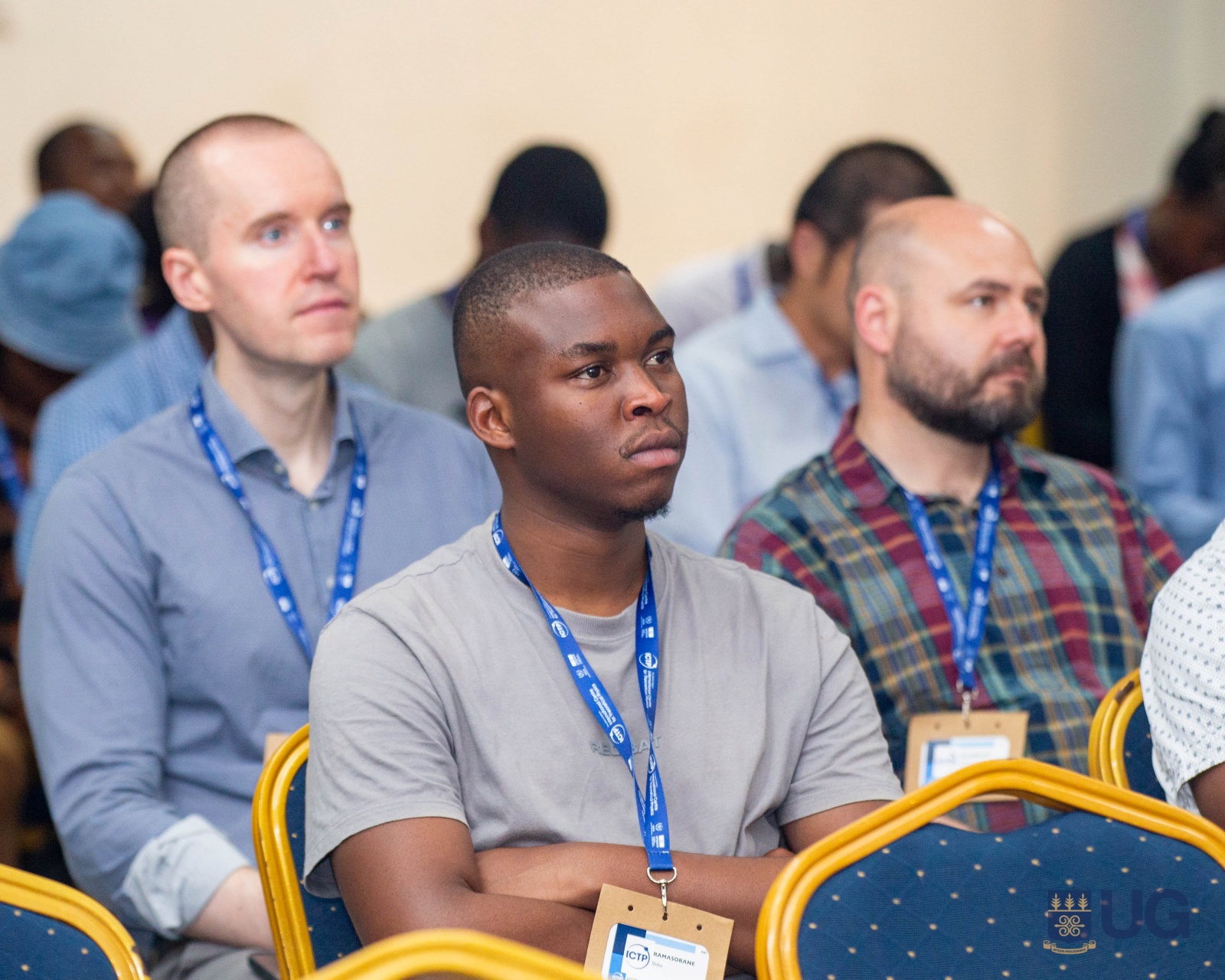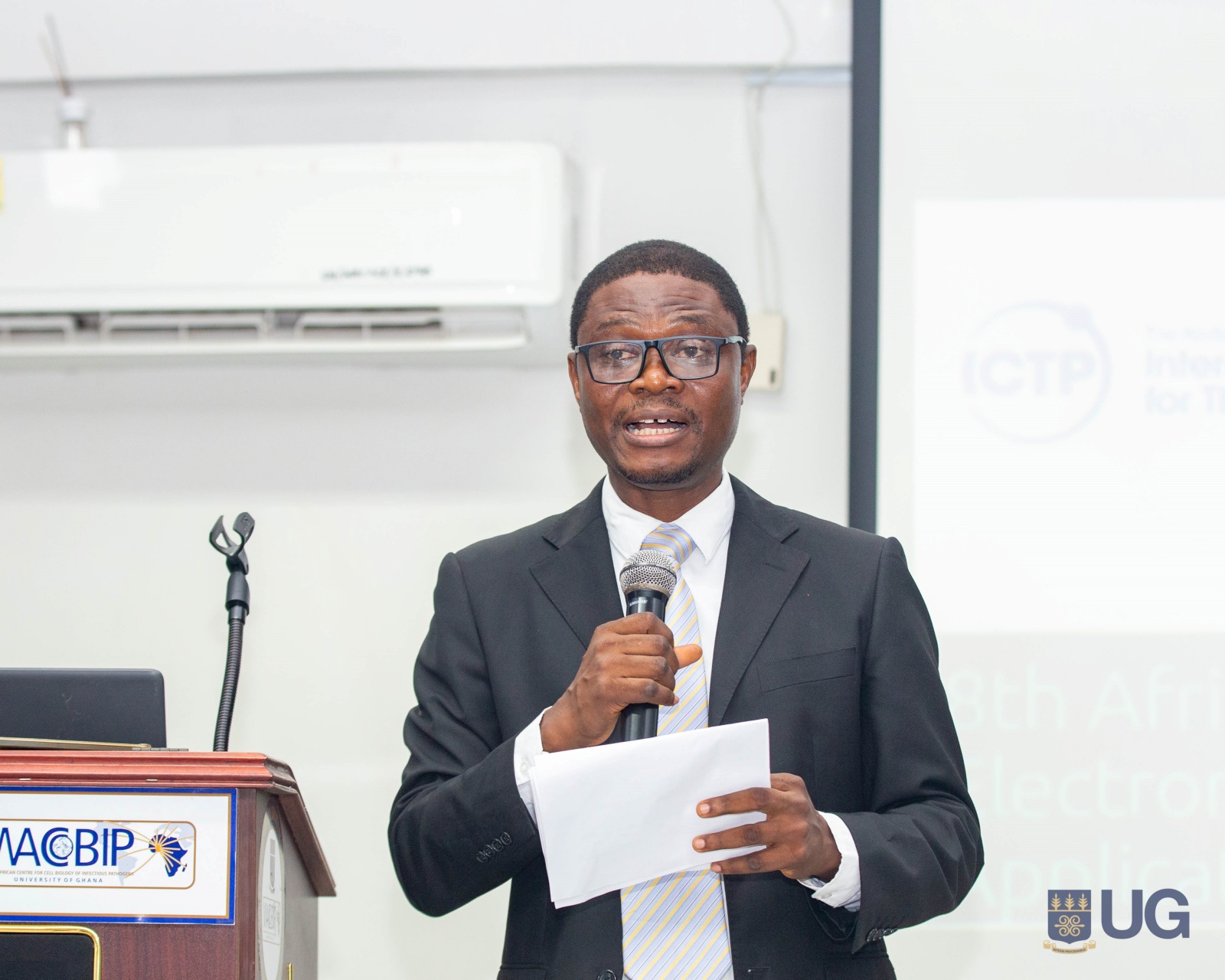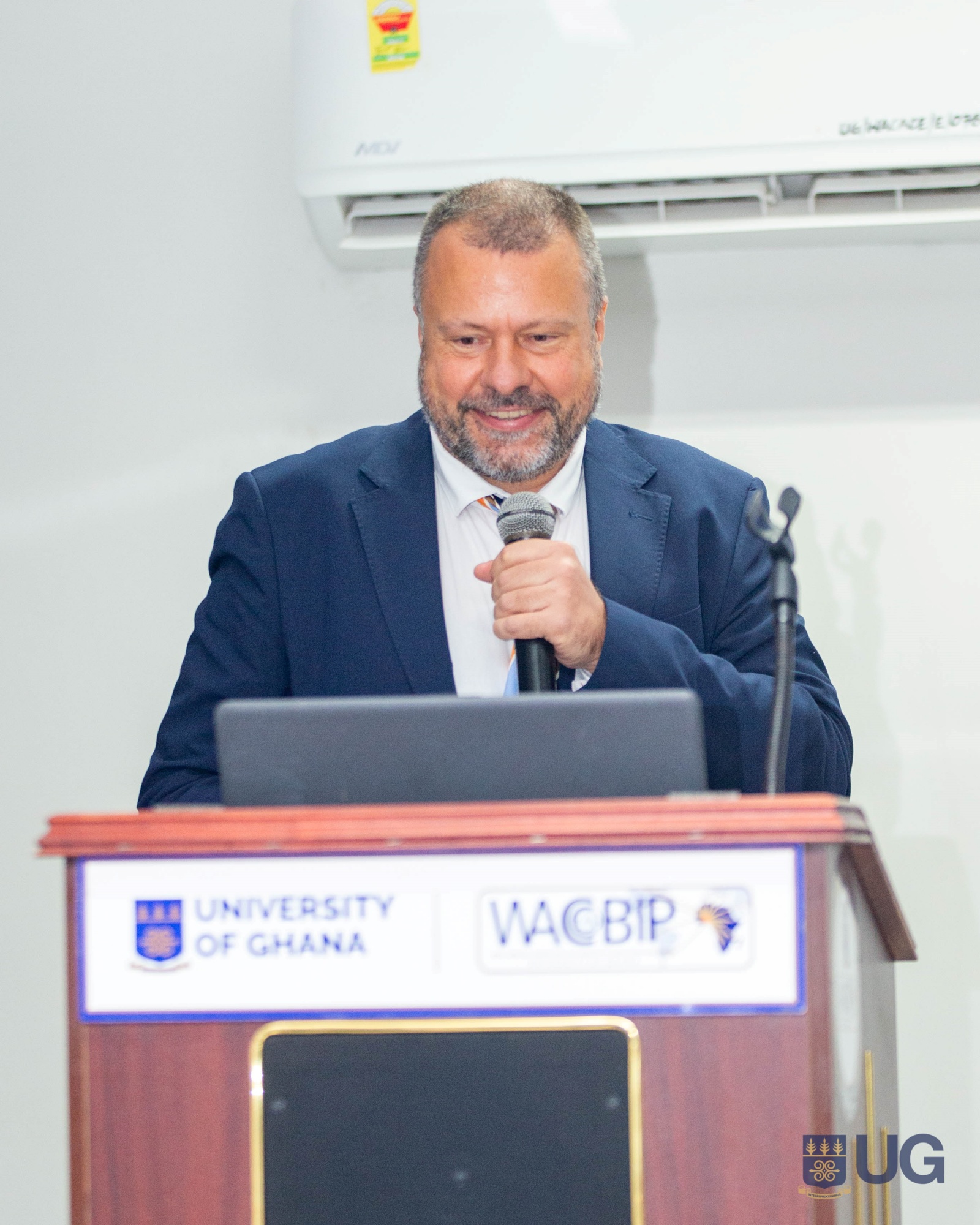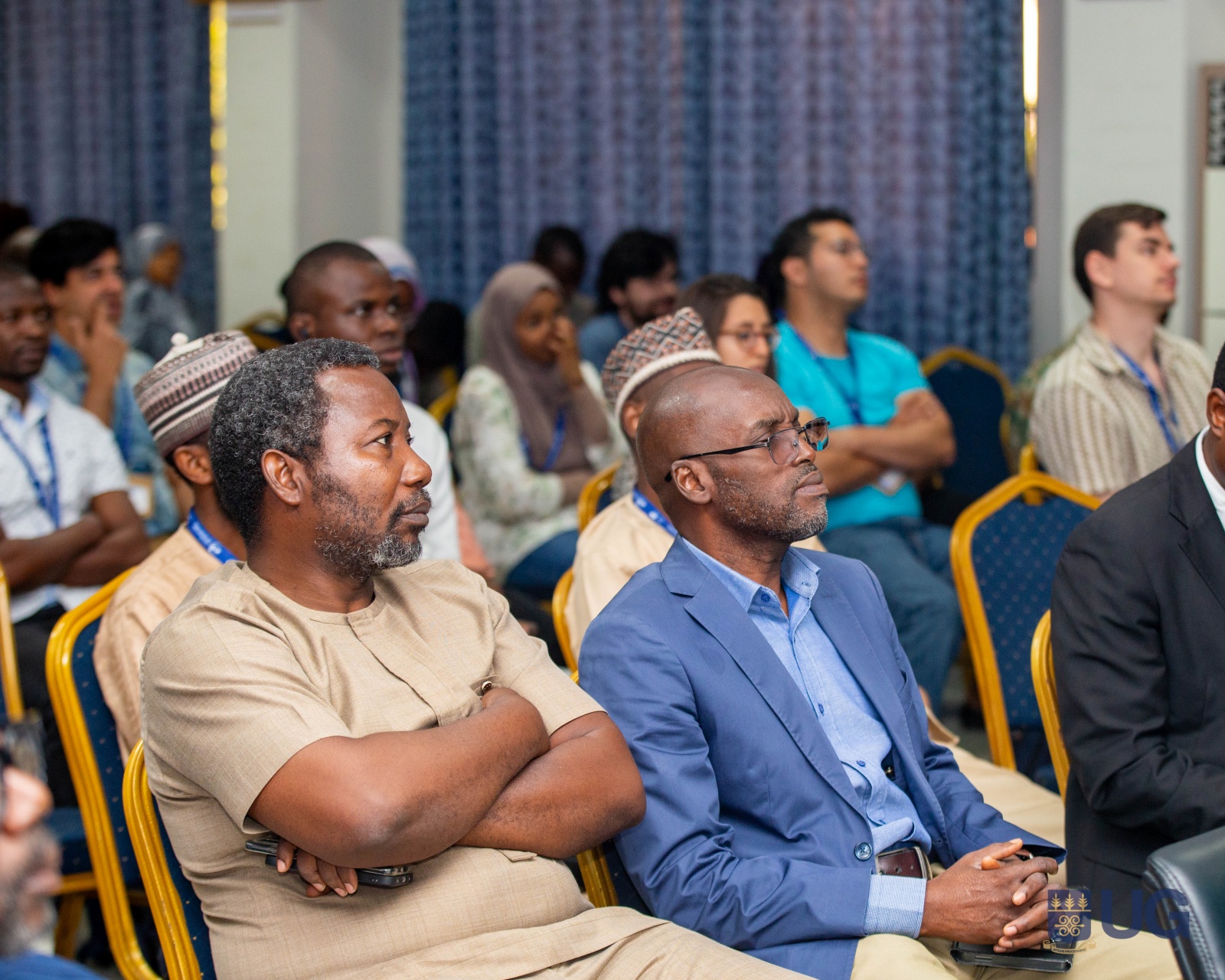ASESMA 2025 Convenes at UG to Build Scientific Capacity for Solving Africa’s and Global Challenges

The 8th African School on Electronic Structure Methods and Applications (ASESMA 2025) has officially commenced at the University of Ghana, drawing participants and facilitators from across Africa and around the world.
The two-week programme, which opened with a ceremony at the University, aims to equip early-career scientists with advanced computational tools to address pressing development needs through materials science and quantum-based research.
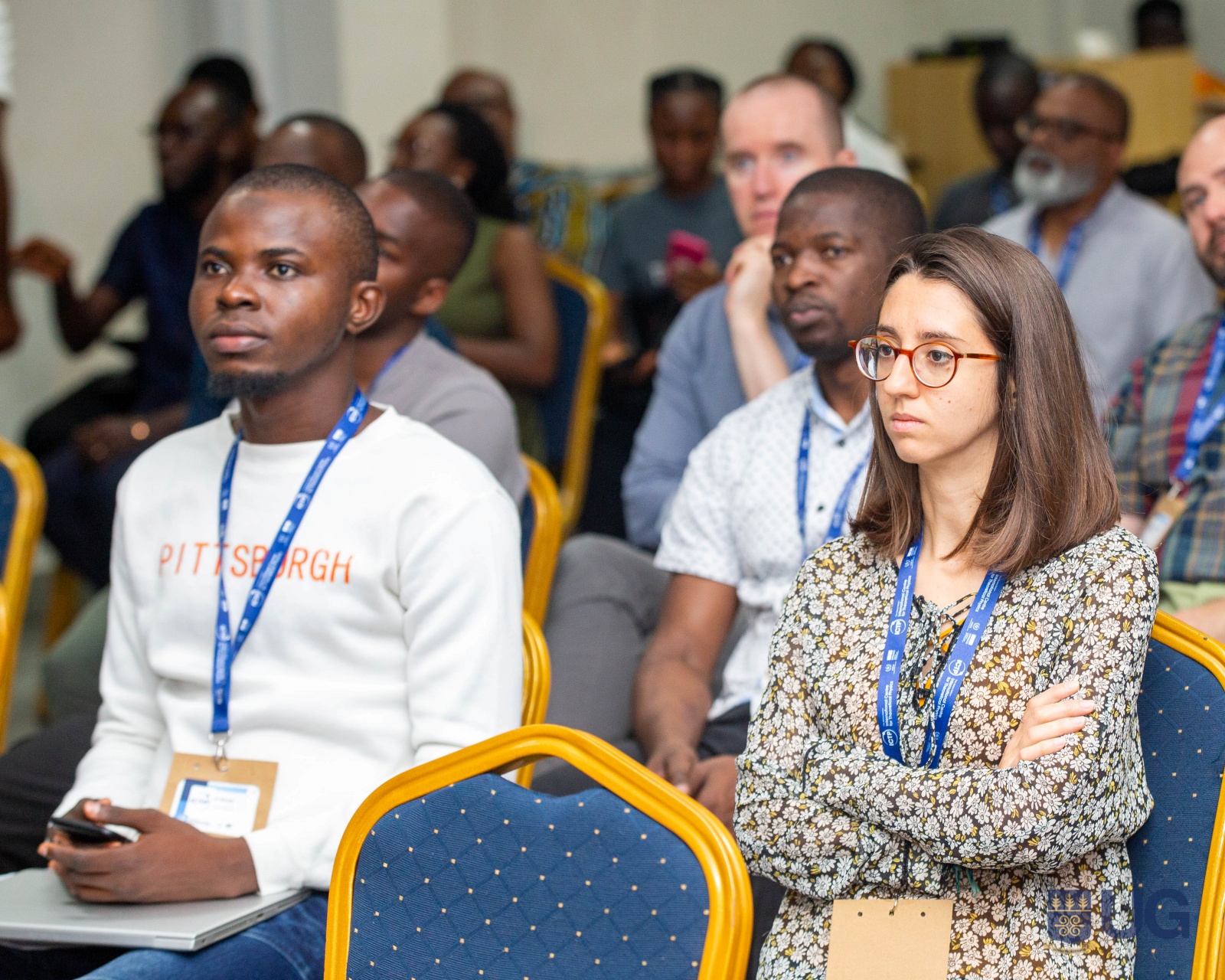
Chairing the opening ceremony, Vice-Chancellor, Prof. Nana Aba Appiah Amfo, highlighted the strategic importance of the School in the African context. She noted that African scientists can drive meaningful progress and address pressing challenges facing the continent, by leveraging its resources and harnessing the power of computational science. “Given Africa’s rich mineral resources, this School provides a strategic opportunity to equip scientists with advanced computational tools to lead in research for development,” she stated.
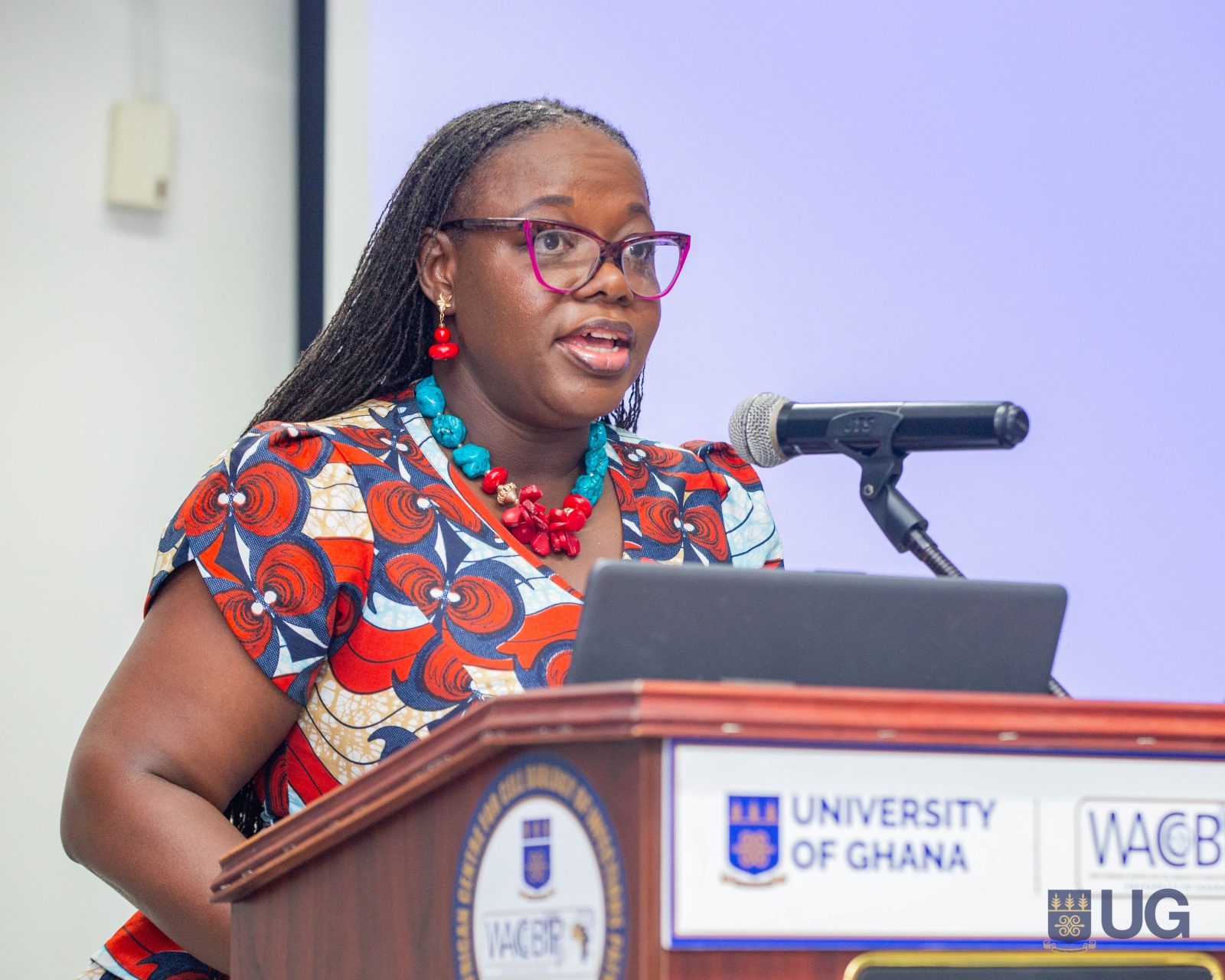
Touching on the University’s research priorities, the Vice-Chancellor added that computational science fits well within the institution’s agenda for multidisciplinary, collaborative work that addresses real-world problems, as it also aligns with the fourth strategic priority – engagement and partnerships.
“The broad application of computational science encourages collaboration across different fields of science. We are happy to note that ASESMA aligns with us,” Prof. Amfo added.
On gender representation in Science, the Vice-Chancellor acknowledged the shifting trend of female representation in science, noting that while women have historically been underrepresented in Science, Technology, Engineering and Mathematics (STEM) fields, there are encouraging signs of change. “As an institution committed to inclusivity, we are proud to have a growing number of women researchers who are making their mark in the field.”
Speaking at the opening event, the Italian Ambassador to Ghana, H.E. Laura Ranalli, reaffirmed Italy’s dedication to fostering global scientific collaboration through the works of institutions such as the Abdus Salam International Centre for Theoretical Physics (ICTP), one of the supporting institutions of the ASESMA.
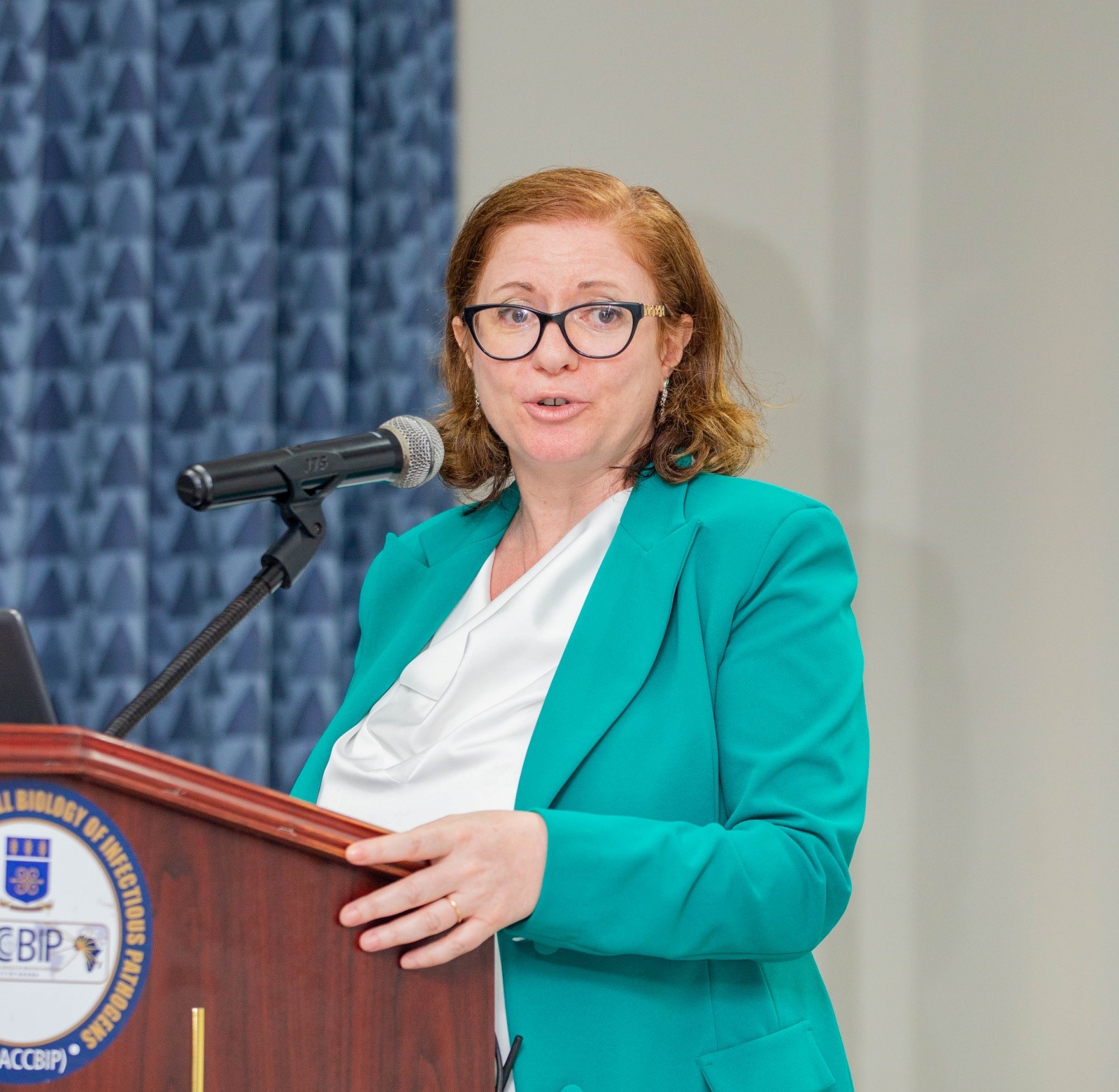
“Italy is committed to the development of scientific and technical cooperation for economic growth and sustainable development,” she said, adding that ICTP’s long-standing support for ASESMA, particularly in 2025, reflects its mission to nurture young talents and unlock new opportunities in science.
Calling for strengthened partnerships to enhance access to science and research, Ambassador Ranalli said, “We encourage continued collaboration between ICTP, academia and non-profit organisations to further build capacity in science across Africa.”
Delivering remarks on the significance of the programme, Provost of the College of Basic and Applied Sciences, Prof. Sandow Mark Yidana, underscored the urgency of Africa’s development challenges and the need for locally-driven scientific innovation.
He noted that while the continent of Africa is endowed with rich mineral and energy resources, it still struggles with severe fundamental developmental challenges. “In Ghana, we are witnesses to perennial water and energy crises, persistent environmental degradation from illegal mining and the growing impact of climate change, all of which threaten the very survival of current and future generation,” he added.
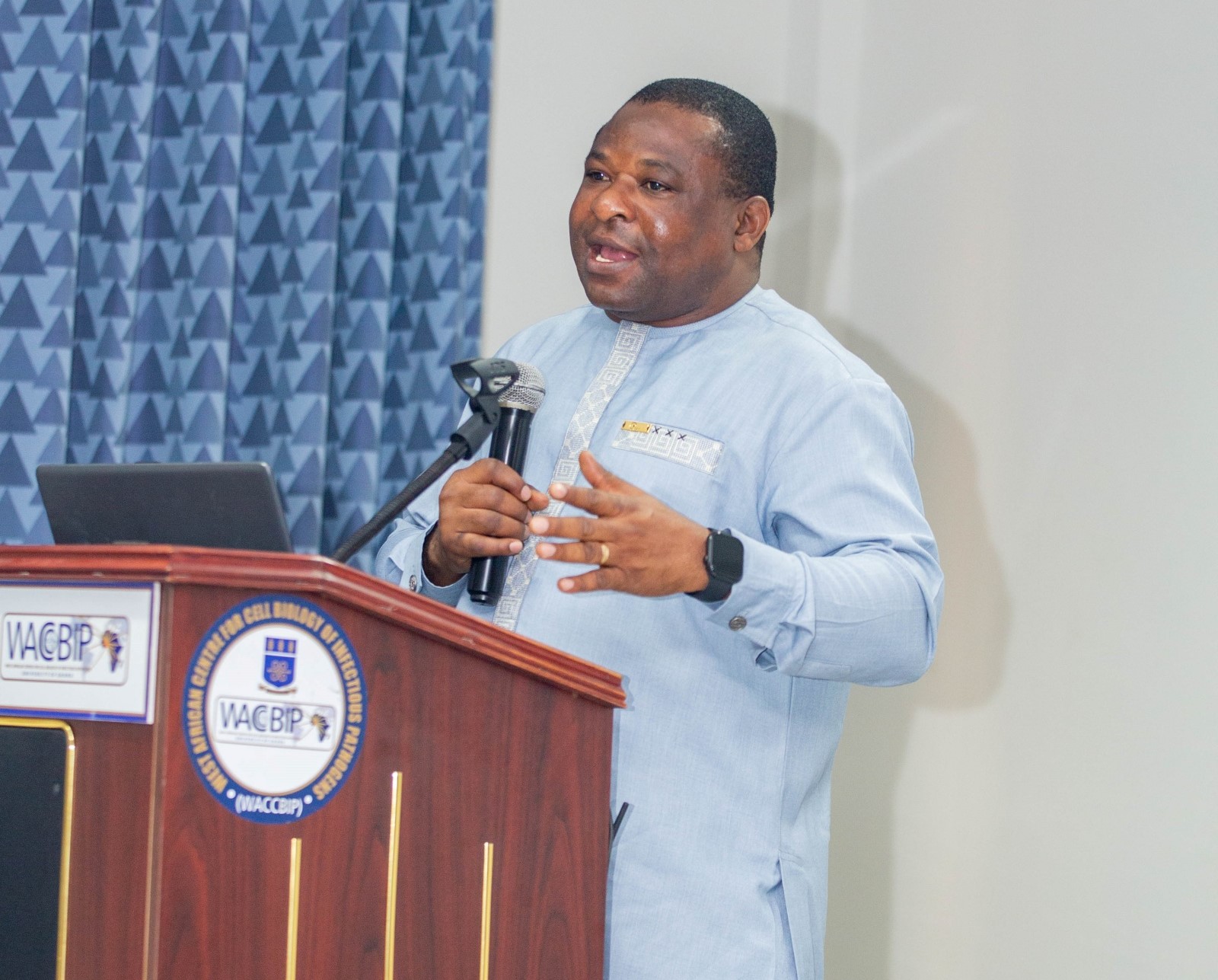
Prof. Yidana stressed the role of computational science in addressing these challenges. “Research is ongoing globally to improve photovoltaic efficiency, battery technology, the design of catalysts for detoxifying polluted water bodies and the discovery of new technological materials. It is critical that African scientists are at the forefront of research in these areas as well.”
ASESMA 2025 continues with lectures, practical tutorials and discussions, including a special session on quantum computing for materials science in recognition of the 2025 International Year of Quantum Science and Technology. The School drew participants from across Africa and will feature speakers from renowned institutions in Switzerland, Germany, France, the USA, India, Spain and Italy.
